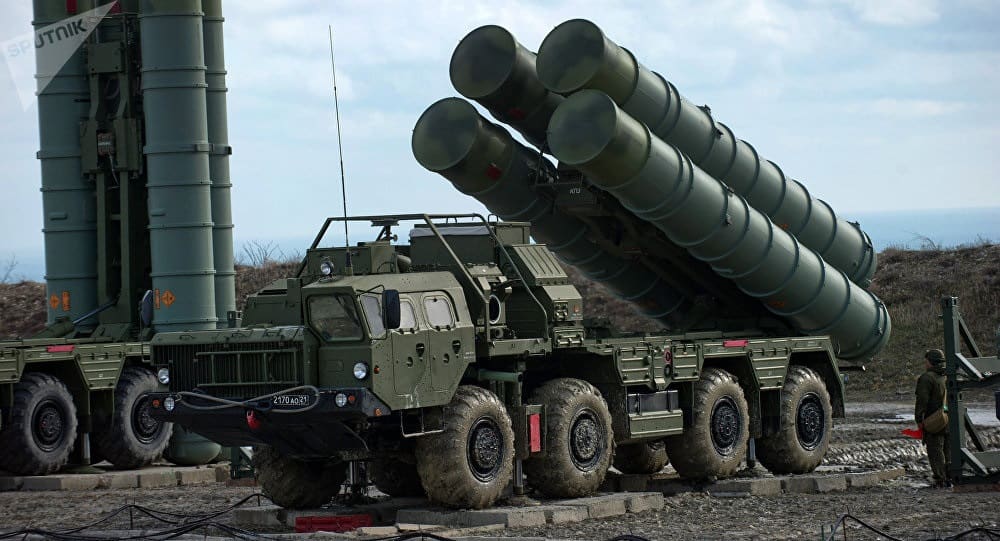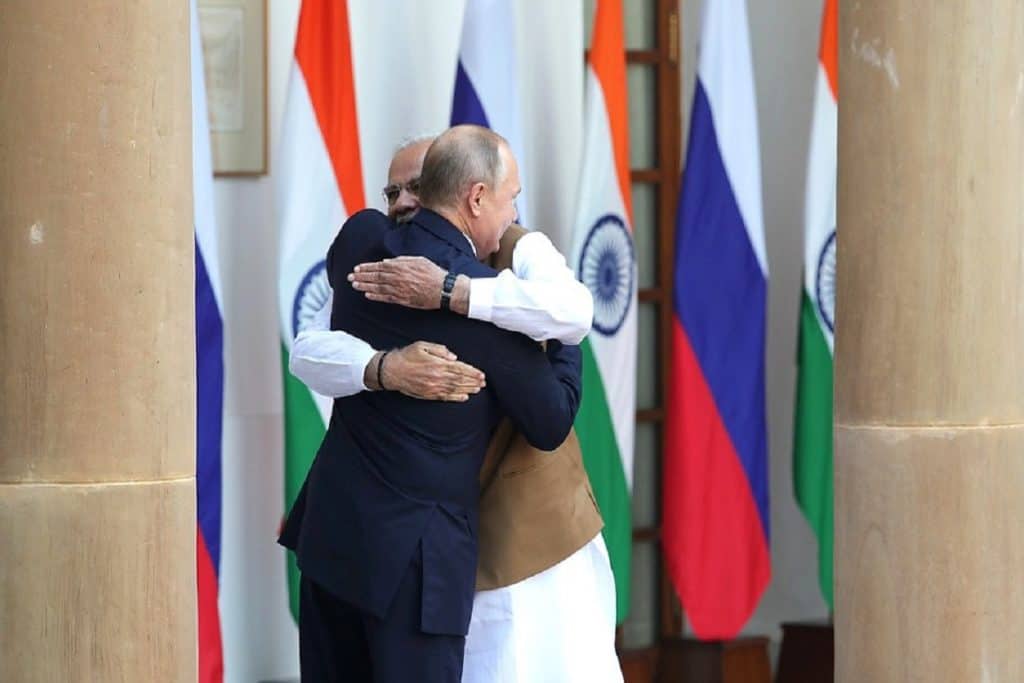India and Soviet Union had a very cordial relationship. The then Prime Minister Jawaharlal Nehru made his first visit to the Soviet Union in 1955. After the fall of the Soviet Union, the first major political initiative between India and Russia Strategic Partnership between the two countries signed in October 2000.
The Indian-Russian Annual Bilateral summits started in 2002. Since then the relationship between the two countries has been elevated to a ‘special and privileged strategic partnership’. President Vladimir Putin stated in an article written by him in the Hindu that “The Declaration on Strategic Partnership between India and Russia signed in 2000 was a truly historic step”. Former Indian Prime Minister Manmohan Singh also agreed with his counterpart by underlining in a speech given during President Putin’s 2012 visit to India that “President Putin is a valued friend of India and the original architect of the India-Russia strategic partnership”.
Both countries have closely collaborated on matters of shared national interest inside UN, BRICS, G20 and SCO, where India has an observer status and it has been asked by Russia to become a full-time member. Russia also supports India’s bid for getting a permanent seat in United Nations Security Council. Russia has also vocally backed India joining NSG.
The 19th India-Russia Annual Bilateral Summit was held in India the 4th and 5th October 2018. During the summit, eight pacts were signed in the fields of space, nuclear energy, railways, defence and economy. A MoU (Memorandum of Understanding) was signed between the Indian Space Research Organization (ISRO) and the Federal Space Agency of Russia (ROSCOSMOS) for joint activities in Gaganyaan. Indian Prime Minister Narendra Modi also said that both sides agreed to joint efforts and cooperate to fight terrorism and trafficking.
It was also signed a $5billion S-400 air defence system deal. Such an agreement raised a lot of unanswered questions. To proceed with the deal India should needs exemption from the Countering America’s Adversaries Through Sanctions Act (CAATSA), which was adopted last year by the United States. The Act imposes sanctions on some Russian companies and on their customers, so restricting the buying of the Russian S-400 Missile defence system, frigates and helicopters.
What the analysts think about the S-400 air defence deal
 Most of the Indian analysts believe that the United States, having recently signed the COMCASA deal with India, will not oppose to the air defence deal between India and Russia because this could have a negative impact on India – U.S relations. So, the United States should have to swallow this deal like a bitter pill. Even Russian analysts believe that the deal will go on as the U.S. doesn’t want that India stops buying weapons from Russia. But even if US defence Secretary James Mattis sought an exemption for India, the decision whether such a waiver will be granted lies with the U.S. President.
Most of the Indian analysts believe that the United States, having recently signed the COMCASA deal with India, will not oppose to the air defence deal between India and Russia because this could have a negative impact on India – U.S relations. So, the United States should have to swallow this deal like a bitter pill. Even Russian analysts believe that the deal will go on as the U.S. doesn’t want that India stops buying weapons from Russia. But even if US defence Secretary James Mattis sought an exemption for India, the decision whether such a waiver will be granted lies with the U.S. President.
The anxiety before the meeting
For New Delhi, there was a great amount of anxiety about the meeting, even though India and Russia have had a great relationship since a long time. The anxiety comes because of the growing relations between Russia and China that are raising worries in New Delhi, also taking in account the recent development in the India-China relations.
The growing China-Russia ties represents a security threat for India. Also, because with China joining hands with India’s rivals in the region, there is very little option for India to get a real support by its immediate neighbourhoods.
But also, with the Russia’s sale of SU-30 and SU-35 fighter, India’s security could be put at a slight risk. India is diversifying its trade partners, and the U.S. has taken benefit from that. But even since the last decade the Russian foothold in the Indian defence system has been reduced to about the 60%, from a previous 70%, Russia still dominates the Indian defence inventory.
Consideration from both sides for maintain good relations
Moscow is worried about the growing India-U.S. ties. With United States increasing its foothold in the Indian defence systems, Russia needs to strengthen India-Russia ties even further.
India needs the support of Russia in many international forums, like the bid for a permanent seat in the United Nations Security Council.
Also, Russia is the only partner that is still willing to give India critical technologies such as nuclear submarines. Russia has also been one of the biggest contributors in the Indian defence technologies. India is not satisfied of its role of regional power and it aspires to reach a global one. To support its ambitions, India must expand its capability, and Russia represents a good partner to cooperate with
Conclusion
The Russian Embassy in the U.S. tweeted that the delivery of S-400 would begin in October 2020. In order to try to avoid the U.S sanctions, probably India will make late payments to Russia. But also, Washington will think twice before applying sanctions to India that could have an opposite effect than it was intended by CAATSA.
According to Rick Rossow, from the Centre for Strategic and International Studies “Congress widened the waiver criteria with India in mind, and the fact we had a robust ‘2+2 Dialogue’ in Delhi a month back shows that the administration believes in the momentum.”
This means that only time will tell whether India faces the same fate as China who faced the US sanctions when it bought the S-400 from Russia.
Image Credit: Russian Presidential Press and Information Office; Sputniknews







